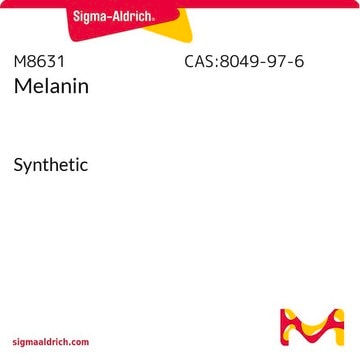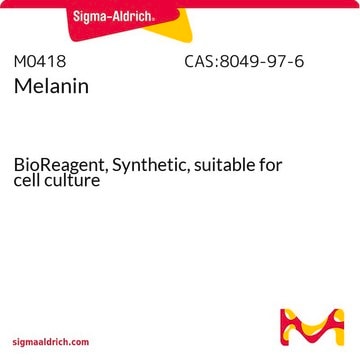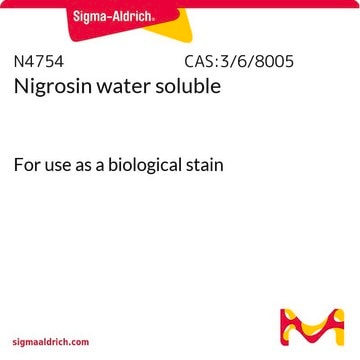M2649
Melanin from Sepia officinalis
99% purity (TLC), powder
Synonym(s):
Melanin
About This Item
Recommended Products
product name
Melanin from Sepia officinalis, 99% (TLC)
Quality Level
assay
99% (TLC)
form
powder
solubility
hydrogen peroxide: 1 mg/mL, dark brown
application(s)
diagnostic assay manufacturing
hematology
histology
storage temp.
−20°C
InChI
1S/C18H10N2O4/c1-5-13-9-7(3-19-13)12-10-8(11(9)17(23)15(5)21)4-20-14(10)6(2)16(22)18(12)24/h3-4,19-20H,1-2H3
InChI key
XUMBMVFBXHLACL-UHFFFAOYSA-N
Related Categories
General description
Application
- as a natural pigment for Raman spectroscopy measurements
- in competitive enzyme linked immunosorbent assay (ELISA) for the characterization of phage antibodies
- as an external standard for spectrophotometrically determining the melanin production in B16F10 cells
Biochem/physiol Actions
Storage Class
11 - Combustible Solids
wgk_germany
WGK 1
flash_point_f
Not applicable
flash_point_c
Not applicable
ppe
Eyeshields, Gloves, type N95 (US)
Choose from one of the most recent versions:
Certificates of Analysis (COA)
Don't see the Right Version?
If you require a particular version, you can look up a specific certificate by the Lot or Batch number.
Already Own This Product?
Find documentation for the products that you have recently purchased in the Document Library.
Customers Also Viewed
Our team of scientists has experience in all areas of research including Life Science, Material Science, Chemical Synthesis, Chromatography, Analytical and many others.
Contact Technical Service














